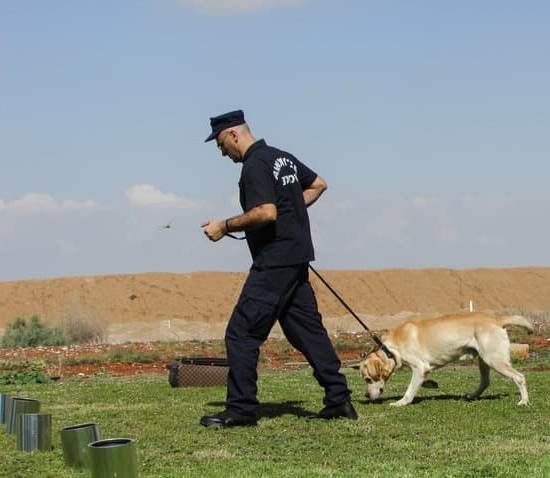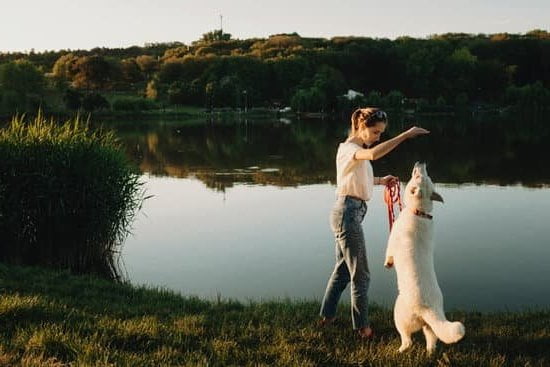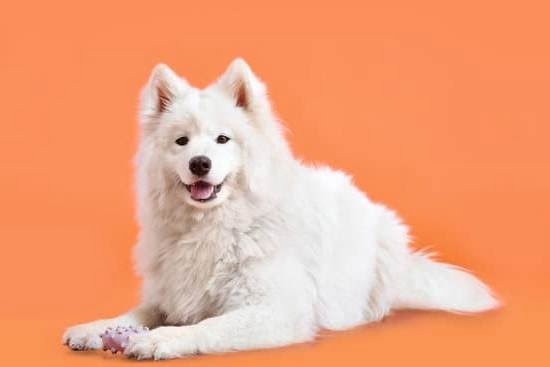There are many reasons why a dog might refuse to be potty trained. It could be that the dog is not housebroken, has not been taught how to properly use the bathroom, or is simply being stubborn. In some cases, a dog might refuse to be potty trained because of a medical condition that is preventing it from controlling its bladder or bowels. If your dog is refusing to potty train, it is important to determine the root of the problem and take appropriate steps to correct it.
One of the most common reasons why dogs refuse to be potty trained is that they have not been properly housebroken. Dogs typically learn how to use the bathroom outside, but some can be trained to use a litter box or to urinate and defecate in specific areas of the house. If your dog has not yet been housebroken, it is important to start training it as soon as possible. Begin by taking it outside frequently, and rewarding it with treats and praise when it eliminates in the correct spot. If your dog is having trouble making the transition to using the bathroom inside, you might want to try using a litter box or training pads.
Another reason why dogs might refuse to be potty trained is that they have not been taught how to properly use the bathroom. This is often the case with puppies, which need to be taught how to eliminate outside, as well as how to wait until they are outside to relieve themselves. If your dog has not been taught how to use the bathroom, start by taking it outside frequently and rewarding it with treats and praise when it eliminates in the correct spot. You can also try training your dog to use a designated area inside the house, such as near the front or back door.
In some cases, a dog might refuse to be potty trained because it is simply being stubborn. This is often the case with older dogs that have been housebroken and know how to use the bathroom, but simply choose not to do so. In these cases, there is not much you can do except to keep taking the dog outside and rewarding it when it eliminates in the correct spot.
Finally, a dog might refuse to be potty trained because of a medical condition that is preventing it from controlling its bladder or bowels. This is more common in older dogs, but can also occur in puppies. If you think your dog might have a medical condition that is preventing it from being potty trained, you should take it to the veterinarian for a check-up.
How To Train A Dog To Potty Inside
There are a few things you can do to help train your dog to potty inside. The first is to create a designated potty area inside your home. This can be a specific spot in your home where you want your dog to go to the bathroom. You can put down a pee pad, or use a specific corner of the room. If your dog is having trouble getting the hang of going potty inside, you can also put a cue word or phrase together with the designated potty area. For example, you might say “Go potty” every time you take your dog to the designated potty area.
The second thing you can do is to reward your dog for going potty in the designated area. Whenever your dog goes potty in the right spot, give them a treat and lots of positive reinforcement. This will help your dog learn that going potty inside is a good thing.
It may take a little bit of time and patience, but with a little bit of work, you can train your dog to potty inside.
Dog Bells For Potty Training
Dogs have a natural instinct to want to keep their living spaces clean. This is why potty training a dog is usually a relatively easy process. One way to help reinforce the idea that the bathroom is the appropriate place to go is to use a dog bell.
A dog bell is a small bell that is hung on a door or gate. When the dog needs to go outside, he or she rings the bell to let the owner know. This is a great potty training tool because it gives the dog a way to communicate his or her needs without having to bark or scratch at the door.
There are a number of different dog bells on the market, but the ones that seem to work best are the ones that are loud enough for the owner to hear from inside the house. Some bells even have a light that goes on when the dog rings it, which is a great way to let the owner know that the dog needs to go out.
If you are potty training your dog, using a dog bell can be a great way to help him or her learn where to go. Not only will it help with potty training, but it can also be a great way to keep track of the dog’s whereabouts when he or she is out in the yard.
How To Potty Train A Dog Outside Fast
There are a few things you can do to potty train your dog outside fast. The most important thing is to be consistent with your commands and rewards. Dogs are creatures of habit and will learn faster if you are consistent with your training.
1. Start by teaching your dog to sit and stay. Once they are able to do this consistently, give them a verbal cue such as “go potty” before releasing them to go outside.
2. Reward your dog with a treat every time they go potty outside.
3. Make sure you take your dog outside frequently, especially after meals and naps.
4. If your dog has an accident inside, do not punish them. Simply clean it up and continue to train them using the same commands and rewards.
5. Be patient and consistent with your training and your dog will be potty trained in no time!
Easy Potty Trained Dogs
One of the easiest things you can train your dog to do is to use the toilet. It’s convenient, eliminates messes, and can be a lifesaver when you’re out and about and your dog needs to go. There are a few different ways to train your dog to use the toilet, but the basic idea is to get them used to peeing and pooping in the same spot.
The first step is to get your dog used to the idea of going in the bathroom. Start by taking them to the bathroom with you, and giving them a small treat when they pee or poop. Once they’re comfortable going in the bathroom with you, start getting them used to going in the actual toilet. Put them in the bathroom, and if they pee or poop, give them a treat and lots of praise. If they don’t go, don’t worry – just take them back out and try again later.
Once your dog is used to going in the bathroom, it’s time to start training them to go in the toilet on their own. Start by putting them in the bathroom and giving them a few minutes to do their thing. Once they start peeing or pooping, give them a treat and lots of praise. If they don’t go, take them back out and try again later. It may take a while for your dog to get used to using the toilet on their own, but with patience and persistence, they’ll eventually get the hang of it.

Welcome to the blog! I am a professional dog trainer and have been working with dogs for many years. In this blog, I will be discussing various topics related to dog training, including tips, tricks, and advice. I hope you find this information helpful and informative. Thanks for reading!





